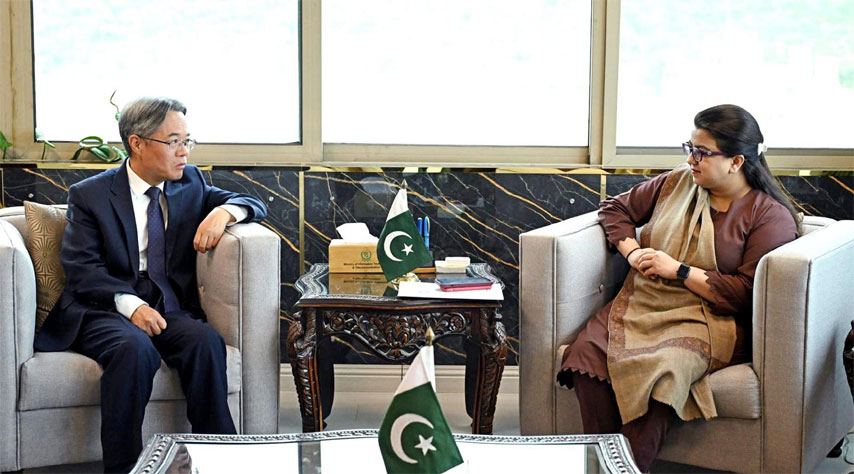The partnership between China and Pakistan in artificial intelligence has entered a new and promising phase. From July 26 to 28, 2025, Shanghai hosted the World Artificial Intelligence Conference (WAIC) and the High-Level Meeting on Global AI Governance. The event was attended by Chinese Premier Li Qiang, who delivered a significant speech at the opening ceremony.
During the conference, China unveiled the Global AI Governance Action Plan. This comprehensive framework contains 13 concrete and actionable measures. The aim is to boost AI development while ensuring safety, security, and controllability. The plan stresses respect for national sovereignty, fairness, inclusiveness, and calls for greater international cooperation in AI governance.
AI is now the driving force behind a new wave of scientific and technological transformation. It is reshaping the global economy and social structures. Alongside its vast opportunities, AI also presents serious risks and challenges. China has long prioritised healthy AI development. In 2023, President Xi Jinping launched the Global AI Governance Initiative, offering a blueprint for the world. The release of the new Action Plan in Shanghai builds on that vision. It addresses global fragmentation in AI governance and offers China’s wisdom for shaping a modern governance model.
The Action Plan is built on six guiding principles. These include “AI for good and in service of humanity,” respect for sovereignty, alignment with development goals, safety and controllability, fairness and inclusiveness, and open cooperation. This approach marks a shift from purely technology-driven thinking to development-focused strategies. It seeks to close the digital divide and promote inclusive growth, reflecting the priorities of many developing nations.
Pakistan, described by China as an “ironclad friend,” recently introduced its National AI Policy 2025. The policy aligns closely with China’s plan in both philosophy and practice. It reflects shared goals of developing nations in the digital era. Pakistan’s policy rests on six pillars: creating an innovation ecosystem, talent development, security governance, industrial transformation, infrastructure upgrading, and global cooperation. The ultimate aim is to achieve “digital sovereignty.”
Pakistan’s focus on ethical AI frameworks, data sovereignty, and transparent governance mirrors China’s emphasis on “safety and controllability.” On infrastructure, Pakistan plans high-performance computing clusters and large language models, matching China’s call for improved digital infrastructure and unified computing standards. In talent development, China’s commitment to global AI capacity-building supports Pakistan’s ambition to train skilled professionals.
Both countries are prioritising AI applications in agriculture, healthcare, and climate resilience. One example is the China-Pakistan AI Smart Agriculture Laboratory in Faisalabad, which uses AI to help farmers monitor crops and improve yields. Chinese technology giant Huawei is also training 200,000 IT professionals in Pakistan, strengthening the base for long-term China-Pakistan AI cooperation.
The Joint Statement between the two nations reaffirms their pledge to boost cooperation in IT, policy sharing, and talent exchange in AI, big data, and communication technology. Looking ahead, both sides have outlined several steps. These include aligning AI policies and governance standards, collaborating on research, and expanding AI use in agriculture, healthcare, and education. They also plan to enhance data security cooperation and ensure ethical AI practices.
China is now planning to establish a World AI Cooperation Organization to close the AI divide and promote AI for good. The initiative aims to channel the benefits of AI development to all, especially developing countries.
Through joint efforts, China-Pakistan AI cooperation is set to deliver stronger results. This collaboration will also be a key part of upgrading the China-Pakistan Economic Corridor (CPEC), particularly the “Innovation Corridor.” As strategic partners, both nations remain committed to openness, inclusivity, and shared benefits. Their AI partnership aims to create better digital opportunities for their people and contribute solutions from the developing world to global AI governance.
By treating AI collaboration as a fresh starting point, China and Pakistan are ready to deepen innovation ties, share development opportunities, and write a new chapter in their enduring friendship. Together, they aim to shape an equitable and inclusive AI future that supports global peace, prosperity, and sustainable development.

